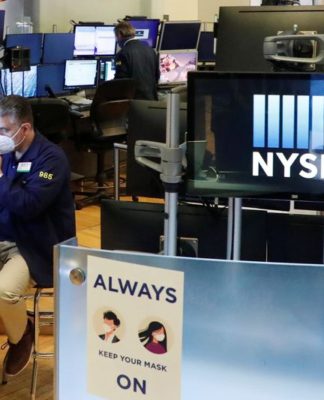Dive Into DeFi
Dive Into Defi: I’m In It For The People
By
Ben Antes
April 7, 2021
When I first took the time to learn about cryptocurrency, or blockchain specifically, what really caught my attention was not the promise of Lambos on the moon or even the tech, what stood out to me was what the tech-enabled: People.
Introduction
At the time, crypto had no real use case. Four years ago your options were to buy, hold, or transfer. Sure, it met the use case as a means of transferring value, but at the time this was not really very revolutionary. Still today, I can transfer value quicker and cheaper with other methods via Zelle, Cash App, Pay Pal, and other money transfer services. Many use this fact as a reason why crypto will fail, but I think they fail to see the big picture. They fail to see the big picture because to a large extent the picture has not been drawn, and many cannot comprehend what they cannot tangibly interact with. They cannot envision a future that they themselves are not the architect of. The future needs to make sense. The problem with technology, however, is that we largely don’t know what’s coming, as incremental improvements over time lead to compounded returns in innovation and application.
poster
One of my favorite articles to look back on was written by Clifford Stoll in 1995, titled, “Why the Web Won’t Be Nirvana.” I think the following excerpt will summarize his thoughts on the internet at the time:
Then there’s cyberbusiness. We’re promised instant catalog shopping—just point and click for great deals. We’ll order airline tickets over the network, make restaurant reservations and negotiate sales contracts. Stores will become obsolete. So how come my local mall does more business in an afternoon than the entire Internet handles in a month? Even if there were a trustworthy way to send money over the Internet—which there isn’t—the network is missing a most essential ingredient of capitalism: salespeople.
What I believe Stoll missed in this article was what existed outside of his understanding. He was right, at the time the internet was largely useless. What he failed to account for was future minds making incremental improvements on something with vast and limitless potential. We have clearly not reached the peak of Internet potential, and we likely never will.
Flawed Logic Skewes Reason
Similar to Stoll’s inability to see the potential in what was at the time unseeable, we see the same today from the critics of cryptocurrency. “Bitcoin will never be a currency!” Okay, you may very well be right. “If I can’t hold it, it isn’t real!” None-sense. “Regulators will destroy it!” How? Why? “It’s a Tulip Bubble!” Come on man. Humans are incredibly quick to categorize in an attempt to make sense of the world around them. Cryptocurrency needs to fit within a neatly packaged box for many to begin to even try to understand it. The reality is that nobody can categorize cryptocurrency because the use cases are still emerging. Crypto doesn’t fit one category, and it likely never will.
Many may also feel as though they were late to the party. The fact that so many people made fortunes early on is used as an example of why this technology will fail. This is the bubble theory in a nutshell. If you are one of these people, I hate to break it to you, but the world doesn’t care about your missed opportunities. Are you too late to invest today? I don’t really think so, but even if you were, that’s a representation of your failure, not Bitcoin’s.
Why I Am Invested
I’m going to share my logic on why I’m invested in cryptocurrency, and maybe you’ll think I’m nuts. But If you do, I challenge you to really question how (for lack of a better word) smart you actually are, and why you feel the need to be right. I don’t need to know the potential use cases. I don’t need to categorize cryptocurrency. I don’t think that is even possible. So here is my entire investment thesis in one sentence:
“People much smarter than me from all around the world have the ability to develop use cases on top of a fundamentally sound and secure ledger (with inherent economic value) of information that can never be tampered with.”
In summary: I have no idea what will come next for crypto and blockchain, but my investment is a bet on the individuals developing on it. That’s really it. Thanks to the economic model of most cryptocurrencies, the more use cases, and demand, the higher the token value.
Still confusing? Let’s look at it this way. Suppose the internet had limited bandwidth. As demand grew, participants would have to pay an increasing amount of money to move information from A to B. Now imagine a world in 1995 where you could buy some of that bandwidth as an investment. It would have been a blind investment, of course. However, as use cases grew along with demand, your bandwidth would have become incredibly valuable.
It Really Is About the People
I have a unique vantage point within the blockchain space. On a daily basis, I interact with investors, thinkers, and developers from all around the world. At BSC News alone, we have a staff that spans nearly every continent on Earth. Blockchain development has become a space where the barriers to entry are practically destroyed, and anyone with an internet connection and the conviction to build is welcome to participate.
Having interviewed nearly two dozen project developers in a matter of weeks, I have discovered a common theme that rings true to nearly all of them. They are unbelievably devoted to what they are building and the impact they hope to have on the world. On a number of occasions, developers on the podcast have become emotional when discussing their journey in the space. It has been life-changing for many, and the work they are doing is really only beginning. You can feel the passion they put out, and it is inspiring.
The online space often referred to as Crypto Twitter is also fun as hell. Yes, it is obnoxious, inappropriate at times, and hilarious, but it is filled with incredibly helpful people looking to share this experience with one another.
Conclusion
If you are reading this as a developer, investor, or someone completely new to the space, I think it is important to step back and really look at what is going on in this space. Pay close attention to how it is described. Consider how quickly Defi has emerged and continues to innovate. Pay particularly close attention to the critics. Remember that space now has 2 trillion dollars of capital (on-chain) and thousands of developers constantly competing and innovating. If I had to place a bet again today, I really would not bet against it. A bet against crypto is a bet against human innovation.
Author
Ben Antes
Ben Antes
KCrypto is BSC News’ Financial manager and one of the four founding team members. KCrypto self-proclaims himself as a yield farming “guru” who finds himself researching the latest De-Fi projects.






























